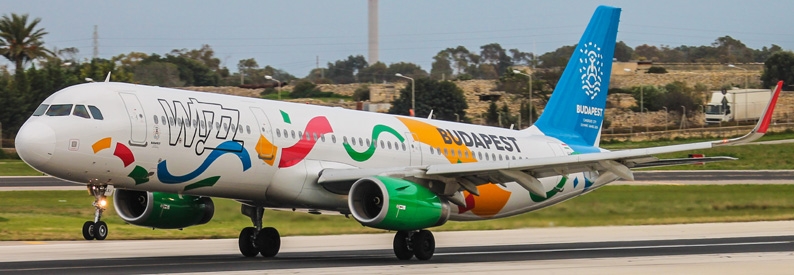US union objects to Wizz Air’s US plans

The union representing American Airlines pilots is opposing plans by European low-cost carrier Wizz Air (W6, Budapest) to launch cargo charter flights to the United States on behalf of the Hungarian government.
In a regulatory filing in answer to Wizz Air’s January 18 application for a foreign air carrier permit under US-European Union reciprocal recognition procedures, the Allied Pilots Association (APA) urged the US Department of Transportation (DOT) to deny the application in its current form, because it was “procedurally and factually insufficient” on the details of the planned service.
They also raised serious concerns about Wizz Air’s “established anti-union record, poor labour standards, questionable safety culture, the impact its foreign carrier permit would have on competition, and its issues with consumer access and protection”. Absent outright denial, the DOT should not expedite the application under the reciprocal regime but delay approval and first ensure that Wizz Air’s operations satisfy the conditions required of all operators of international air services in the US, it stated.
Its concerns should be referred to the European Union Aviation Safety Agency (EASA) and other relevant EU officials, including those from Hungary. If unresolved, the issues should be brought before the Joint US-EU Committee.
Should the DOT decide to move forward under the reciprocal agreement, precedent allowed it to impose conditions on a foreign carrier certificate to ensure safety, competition, and labour and consumer rights protection.
“Until the Department is satisfied that these legitimate concerns are addressed, it should insist that the carrier follow the typical application process for foreign carriers rather than the expedited application process under the agreement. By doing so, the Department will enable itself to make a more informed final decision on the foreign carrier permit and ensure that it is not simply rubber-stamping the application of an air carrier that would not otherwise be permitted to operate in the United States,” the union said.
It wants the DOT to impose the following conditions:
Safeguard labour rights: All Wizzair employees should be free to unionise and would not face negative career repercussions for doing so;
Ensure safety: The DOT should coordinate with the Federal Aviation Administration (FAA) on appropriate conditions, impose them, and specify measures for monitoring and enforcement. The DOT should also impose conditions that would prevent retaliation when employees voiced concern about safety, including pilot fatigue;
Ensuring competition and consumer access: The DOT should ensure competition under its statutory authority. It pointed out that Wizz Air’s largest shareholder, investment company Indigo Partners, has investment interests in other low-cost carriers, which directly impacted American Airlines and its employees. Other airlines in the Indigo Partners portfolio include Volaris, Frontier Airlines, and JetSMART. American Airlines recently announced a codeshare partnership and ownership investment in JetSMART for North and South America travel. At least one senior American Airlines executive had past and/or current business ties to Indigo and Wizz Air. “It is likely that these entities, rather than competing, may seek to exploit their business relationship to lower labour costs. Frontier Airlines […] would likely be reluctant to compete with Wizz Air on routes that they would serve in common with the same aircraft,” it said.
Safeguarding consumer rights: The APA said the DOT should take into account numerous criticism against Wizz Air for frequent overbooking, delays, cancellations, and overlooking passenger protection regulations, in particular statements made by the Italian civil aviation authority (ENAC) in March 2021.
Procedural and factual deficiency: Wizz Air’s application omitted the point/s in the US to be served, the frequency of service planned, and a service schedule stating how these services would be operated. “The carrier’s application does not show that it could realistically and competitively provide the specified charter or cargo service (or, ultimately, passenger service) given that it is not even ETOPS approved and is thus greatly limited in the international routes it could fly,” the APA stated.
